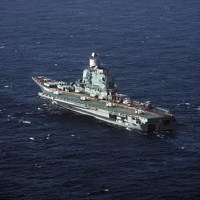The recent announcement by the deputy commander of Russia’s Caspian fleet, Nikolai Yakubovsky, that Russia and Iran intend to hold a combined naval exercise in the Caspian Sea later this year should not have come as a surprise. Not only have the two sides engaged in such joint drills in previous years, but since the breakup of the Soviet Union, the new Russian Federation and the Islamic Republic have enjoyed a surprisingly harmonious relationship regarding regional security issues.
The Iranian government has refused to intervene on behalf of the Muslim guerrillas fighting Moscow in Chechnya or in other parts of Russia. During the 1990s, moreover, Russian and Iranian diplomats cooperated in efforts to end the civil war in Tajikistan. They also aided opponents of the Taliban in Afghanistan and opposed the expansion of Turkey’s influence in their region. Many Russians perceived Tehran as a convenient partner to counter the growing U.S. influence in Eurasia.
Nevertheless, the announcement of the Caspian Sea drill should be viewed with some skepticism, as Iran and Russia are somewhat loose in what they characterize as a naval exercise. For example, in July 2009, speculation about a significant increase in Russian-Iranian defense cooperation grew after the Iranian Mehr News Agency announced that that the two countries would conduct “joint naval maneuvers” in the Caspian Sea. A closer look at the drill, however, showed that it was predominantly an Iranian affair with token Russian participation. To begin with, it took place in Iran’s territorial waters, rather than in international waters. Tellingly, the Russian government contributed only one ship, with all the helicopters and other vessels provided by Iran. The Russian state news agency ITAR-TASS later cited a Russian navy source as saying that the Russian military was not involved in the event—the lone Russian vessel participating in the training drill belonged to Russia’s Ministry of Emergency Situations, not the Ministry of Defense—and explicitly denying that the two countries had conducted their first joint military exercise in the Caspian Sea.

